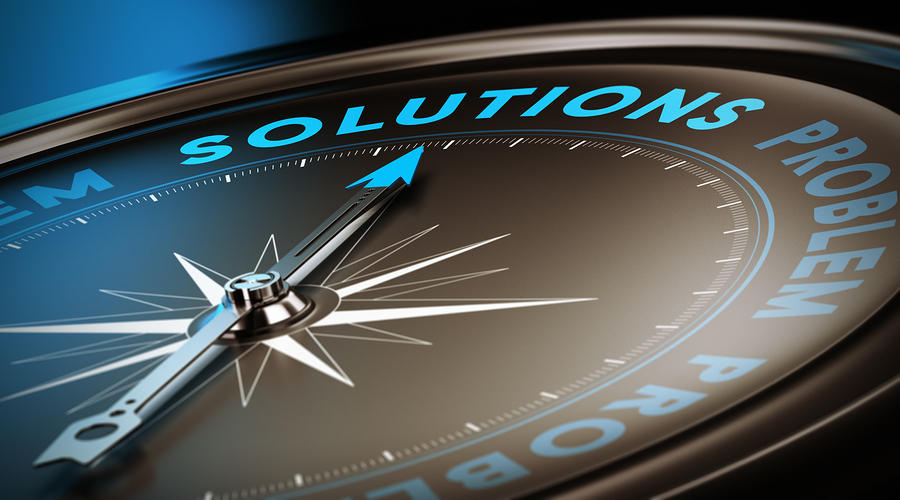How CRMs Have Changed the Sales Landscape

Sales has been going on probably since Ug the Caveman first went cave to cave selling the wheel, and Uga the Cavewoman rolled out a new craze called fire. Between prehistoric times and twenty years ago, the advances in sales “technology” have been 1) the phone and 2) the Rolodex. So it’s kind of amazing to think that in the last twenty years the technological landscape has seen intellectual leaps like the internet and smartphones, which have allowed us sales folks to significantly streamline the way we conduct business. But that’s not all. These days, we tweet, we email, we IM, we blog (hello!), we “like” things on Facebook. And, “like” it or not, we live in a 24/7 world.
We’re Gatherers
In the timeline of history, our information-gathering and information-generating system is only the blink of an eye old, but already it seems clunky and inefficient, because our data ends up littered across the digital landscape. But there’s a fix: the CRM, short for customer relationship management, a SaaS application to help sales teams work smarter. Unless you want to be seen as prehistoric (and, really, who looks good in off-the-shoulder leopard print?) you need to get a CRM. If not, you’ll be at a disadvantage to the competition, even with that snazzy Rolodex app.
Why CRM?
A CRM enables you to manage any and all data associated with your past, present, and future business dealings. CRMs centralize information such as who your customers are, what you’ve sold to them, and how many sales you’ve completed with them. All of this helps salespeople manage customer relationships by organizing the data associated with those relationships.
Predictably, the marketplace is flooded with a myriad of CRM applications. These vary by aspects such as features, price, and scope, so if you’re planning to invest into a CRM, do your research and choose one that fits with your business needs. Yes, there are a lot of them out there, but what they all have in common is that they allow you to work smarter and provide benefits such as:
Transparency
Let’s admit it: We all suffer from middle-age moments. OK, your memory is sharp as the proverbial tack … regardless, CRMs help salespeople and sales teams keep track of processes—capturing data that might otherwise be overlooked. They not only store and organize all your data, they enable you to easily find it again when you or a team member need to have instant access to the info. Among other things, CRMs create transparency, revealing big or small snapshots of your operation.
Most CRMs have the capacity to store all email communications between sales professionals and customers in a central location, making them accessible to entire teams. This streamlines processes, tracks accountability and, again, creates transparency for the sales organization.
CRMs also secure your information, unlike when you store data in notepads, calendars, work phones, memo books, etc. Your laptop can be stolen, invaluable data along with it, but a CRM is accessible independent of which device you use to access it—as long as you have the proper user permissions.
Streamlined Processes
The status feature of a CRM allows you to group your customers and leads into different categories, enabling you to prioritize accounts and leads in order of importance and/or timeliness. Touch points with customers—calls, emails, in-person visits—are easily updated in the status field of CRMs. Again, your memory isn’t perfect, especially when you’re busy, so use your gray matter for other things and let the CRM keep track of where clients are in the sales process.
Reporting and Forecasting
When it comes to metrics and report generation, CRMs house a wealth of data on things like:
- Average length of a sales cycle
- Number of leads assigned to a particular salesperson
- Closed and lost opportunities
- Lead sources and opportunity conversion rates
- Activity and event reports, etc.
They generate unbiased reports on efficiency and success rates, and give instantaneous metrics on dozens of aspects of your business.
CRMs aren’t crystal balls that let you see into the future, but with the amount of data they hold and sort about your past and present you can track trends based on performance and historical patterns. From there, you can make intelligent, data-based predictions.

- Account Planning (16)
- Awards (42)
- Client Testimonial (37)
- Personal Branding (21)
- Podcast (12)
- Research (77)
- Sales Career Development (90)
- Sales Coaching (164)
- Sales Consulting (141)
- Sales Culture (181)
- Sales Enablement (380)
- Sales Leadership (110)
- Sales Management (267)
- Sales Negotiation (11)
- Sales Prospecting (136)
- Sales Role-Playing (19)
- Sales Training (242)
- Selling Strategies (279)
- Soft Skills (78)
- Talent Management (101)
- Trusted Advisor (29)
- Virtual Selling (57)
- Webinar (13)

























